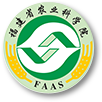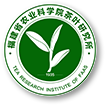Abstract:
Based on 19 fieldexperiments, the indices of N, P and K fertilization for Tie-guanyin (
Camellia sinensis cv.) at the plantationswere established. The “3414” design for the experimentation wasapplied to arrive at amathematic model for optimizing fertilization of the major production areas in southeast Fujian. The indices for determinationincluded soil fertility gradings and target yield, economicalapplication ratefor NPK under the soil fertility gradings or objected yield, surplus and deficiency critical index for available NPK in soil, soil testing and fertilization recommendation, as well as fertilization time and method. The results showed that the tea yield increased in the order of N > K > P in the fertilizer applications. The most economical application rates for a Tie-guanyin tea plantation were determined to be371 kgN?hm
-2, 101 kgP
2O
5?hm
-2 and 136 kgK
2O?hm
-2 at the proportion ofN:P:K=1:0.3:0.4.Both soil fertility and target yield would affect the recommended rates. The high yield critical index for the alkali-hydrolyzable N was 200mg?kg
-1,while 45mg?kg
-1for Olsen- P, and 115mg?kg
-1for available K in soil. A regression model between the available NPK in soil and the optimal application rate was obtainedto provide a computational means for appropriate fertilization of Tie-guanyin tea production under selected conditions.




 下载:
下载: